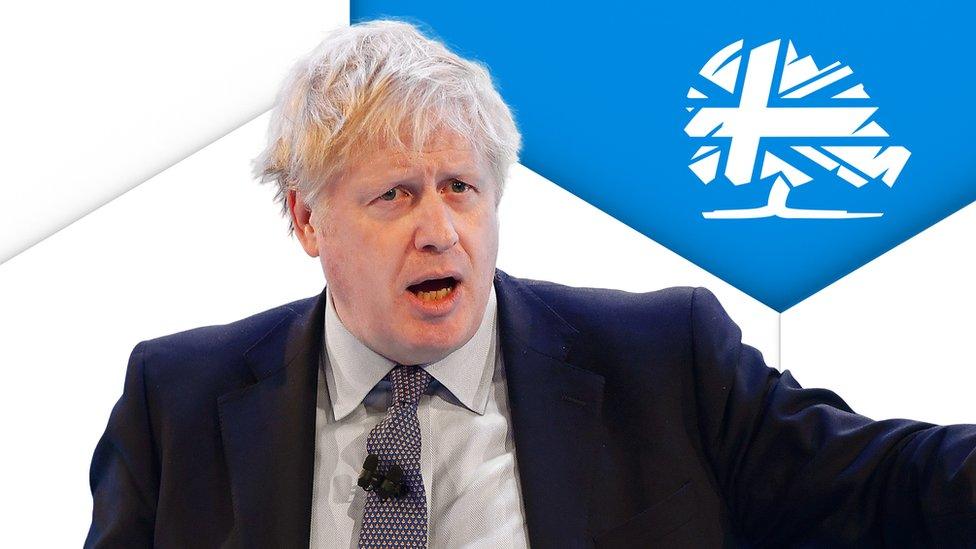General election 2019: Child poverty 'will rise' under Conservative plans
- Published
- comments
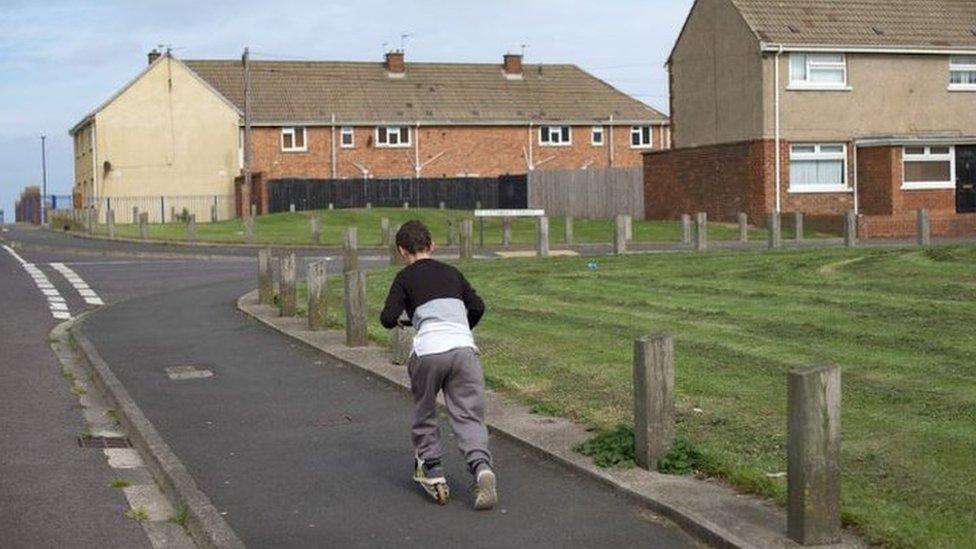
Child poverty risks reaching a record high under the Conservatives, according to a Resolution Foundation report.
The party's manifesto does not propose changes to existing benefit policy and, as a result, relative child poverty would reach a 60-year high of 34% by 2023-4, the think tank said.
But none of the three main party manifestos would reduce child poverty from its current rate of 29.6% by then.
The Tories said they were committed to tackling child poverty.
The report, which was published on Tuesday,, external said: "It is notable that both the Labour and Liberal Democrat approaches could be expected to halt potential increases in relative child poverty over the next Parliament.
"We forecast that under current policy plans (ie the Conservative package) child poverty will rise from 29.6% in 2017-18 to 34.4% in 2023-24."
Under Labour's plans, which include around £9bn of extra social security spending, the foundation forecast there would be some 550,000 fewer children in poverty compared to Conservative plans.
Labour's plans would see child poverty remain roughly the same, with a rate of around 30.2% in 2023-4.
That figure under Lib Dems' plans, meanwhile, would be 29.7% in 2023-4.
Their social security pledges are slightly more progressive than Labour's and would see 600,000 fewer children in poverty than there would be under Conservative plans, the foundation said.
"However, this would not do enough to see child poverty fall from today's already high levels," the Resolution Foundation's Laura Gardiner said.
Ms Gardiner added: "Policy choices since 2010 have reduced the generosity of support for working age families by £34bn.
"Against the backdrop of major cuts, the parties' manifestos do offer big choices on social security."
The foundation - a think tank focusing on people on lower incomes - defined relative child poverty as those living in households with incomes below 60% of the median in a given year.
In 2017-18, that figure was £304 a week, according to the Department for Work and Pensions., external
Tackling root cause
Labour's shadow chancellor John McDonnell said: "Our reforms to social security, including scrapping Universal Credit, the Two-Child Limit and the Benefit Cap, will stop child poverty increasing, as this report rightly acknowledges."
He added that other pledges would seek to tackle the root cause of child poverty, including free school meals for all primary school pupils and an expansion of free childcare.
A Conservative spokesman defended the Tories' actions on tackling poverty.
"We are committed to tackling child poverty and have made progress since we came into government - with 730,000 fewer children in workless households," a spokeswoman said.
"But we know that we must continue to make every effort on this issue and our manifesto sets out how we will use the tax and benefits system to do this.
"The prime minister has committed to giving every child in the country the opportunities to make the most of their talents."
The report said that while workless households were in decline, one of the new challenges was "in-work poverty".
Correction 5 December 2019: An earlier version of this article included a Conservative Party spokesman's claim that there were 750,000 fewer children in poverty since the party came into government. This claim is incorrect and was removed from the article shortly after publication.

CONFUSED? Our simple election guide, external
POLICY GUIDE: Who should I vote for?, external
REGISTER: What you need to do to vote

- Published28 March 2019

- Published9 April 2019
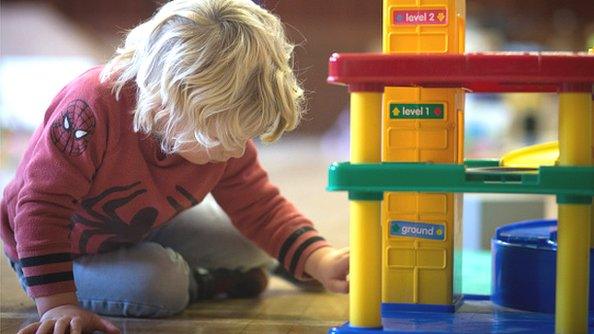
- Published21 November 2019
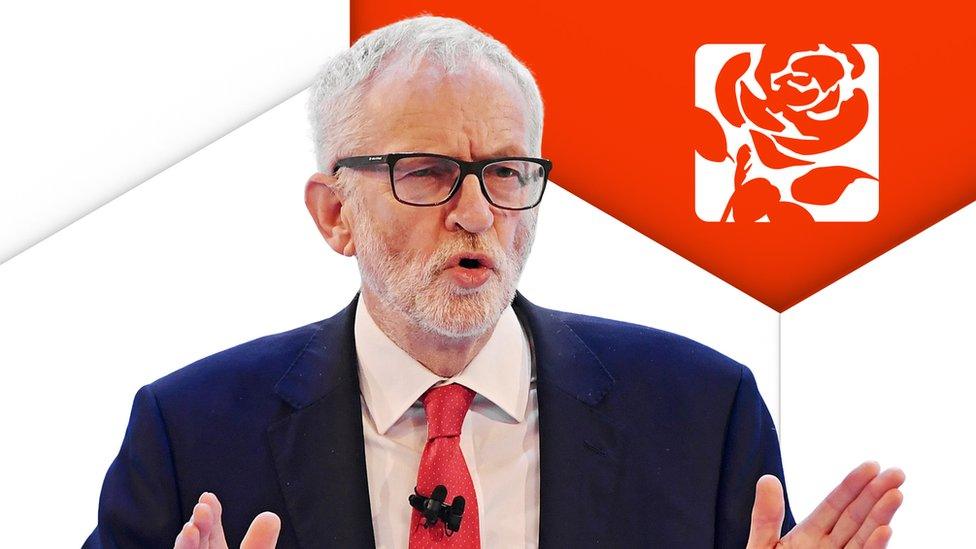
- Published20 November 2019
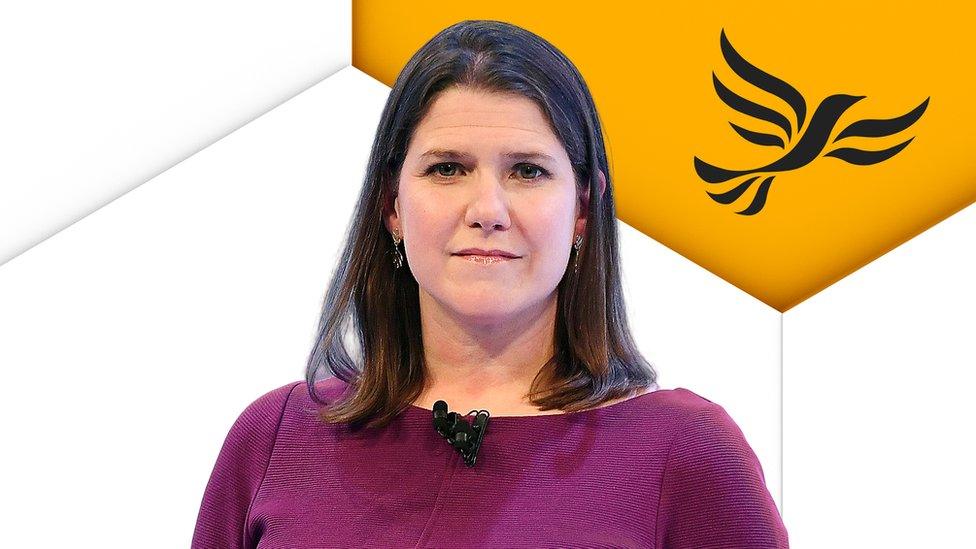
- Published24 November 2019
